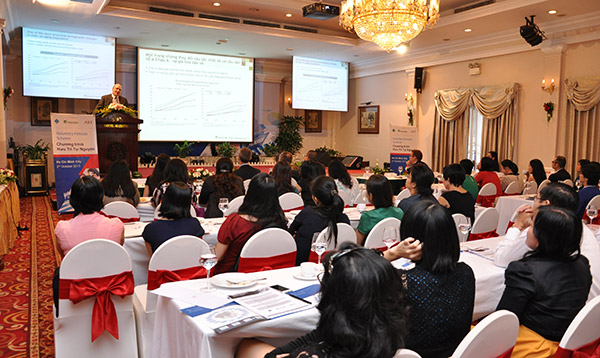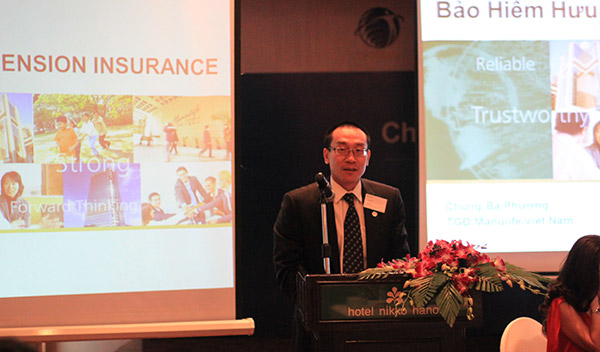Manulife survey suggests poor planning likely to lead to future hardship

The survey, based on 3,500 interviews across seven Asia markets, affirms retirement planning is the most cited financial priority among Asian investors. However, many are leaving it too late and nearly half say they have no financial plan for their retirement at all.
As a result, a large proportion of investors are relying on fall-back options, such as extending their working life or relying on their children’s support, which may not prove reliable.
“For anyone leaving it until later in life to start planning for their retirement, making up the shortfall will become harder and harder. The reality is that, without a clear plan, it won’t be alright on the night," said Robert A. Cook, President and CEO of Manulife Financial in Asia.

Pensions also became a hot issue in Vietnam recently. In October, the Ministry of Finance (MoF) allowed some insurers to carry out voluntary pension insurance in Vietnam with Manulife emerging as one of the few insurers capable of meeting the MoF's tight requirements in term of financial capacity, management systems and human resources to provide the product.
Currently, only 21 per cent of elderly people in Vietnam enjoy a pension, highlighting that the need for Vietnamese employees to participate in voluntary pension insurance is very high.
According to the survey, Asian investors on average expect to depend on retirement savings for an average of 19 years, but the amount they claim they will have saved by the time they retire will cover only 13 years – a six-year shortfall. In some markets the gap is even higher, rising to 13 years in Japan.

And since Asians are living longer and commonly underestimate their longevity, it is highly likely that for many the retirement gap will end up being even greater.
The survey also pointed out that many Asian investors are either leaving their retirement planning too late or not starting to plan at all. Of those who have started planning (55 per cent), about one-in-five did not start until a few years before retirement, while another quarter waited either until having children or until their children had finished school. Of the 45 per cent of investors who do not yet have a plan, nearly half said they would wait until their children had finished school or until they were nearly retired, while another fifth said they did not expect to start at all.
Reflecting the lack of robust retirement planning, many investors appear to be relying on factors that may be out of their control, like health, the job market and other people being willing and able to help, said the survey.
Across the region an average 55 per cent expect to continue in full-time or part-time work during so-called retirement. This response was even higher in Indonesia (68 per cent) and Singapore (69 per cent). About one-in-five expect to rely on their children for financial support. This was particularly evident in Hong Kong (21 per cent) and Malaysia (42 per cent).
What the stars mean:
★ Poor ★ ★ Promising ★★★ Good ★★★★ Very good ★★★★★ Exceptional
Latest News
More News
- Businesses ramp up production as year-end orders surge (December 30, 2025 | 10:05)
- Vietjet chairwoman awarded Labour Hero title (December 29, 2025 | 13:06)
- How to unlock ESG value through green innovation (December 29, 2025 | 10:03)
- AI reshapes media and advertising industry (December 29, 2025 | 08:33)
- FPT and GELEX sign deal to develop blockchain tech for global markets (December 29, 2025 | 08:29)
- Vietnam’s GDP forecast to grow by 9 per cent in 2026 (December 29, 2025 | 08:29)
- Women entrepreneurs are key to Vietnam’s economic growth (December 29, 2025 | 08:00)
- Vietnam's top 500 value-creating enterprises announced (December 27, 2025 | 08:00)
- The PAN Group shaping a better future with ESG strategy (December 26, 2025 | 09:00)
- Masan Consumer officially lists on HSX, marking the next phase of value creation (December 25, 2025 | 13:20)

















 Mobile Version
Mobile Version